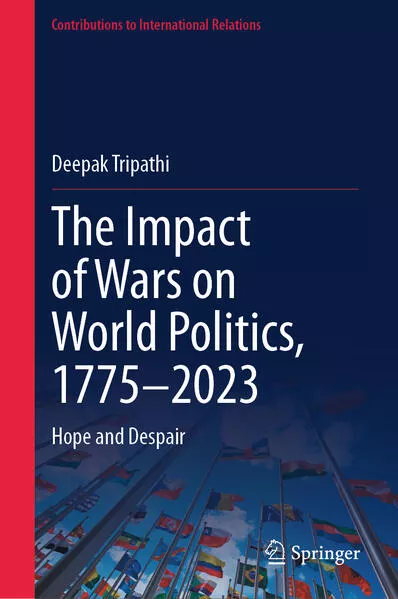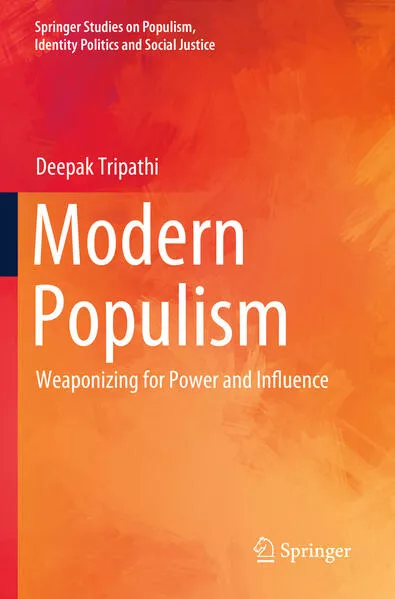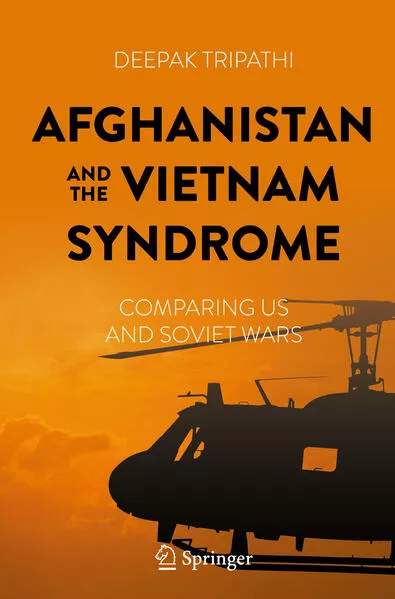
- Publikationen ca: 8
- Buchbewertungen ca: 2
- Fragen & Antworten
Deepak Tripathi
The Impact of Wars on World Politics, 1775–2023
In a study of cyclical history, this book presents a grand sweep of modern history and how decades of savage wars, and turbulence, led to a brief era of exhilaration and hope, followed by despair in the new century. The collapse of the Berlin Wall (1989) and the Soviet Union (1991), marking the end of the Cold War, were celebrated with great euphoria.
The Impact of Wars on World Politics, 1775–2023
In a study of cyclical history, this book presents a grand sweep of modern history and how decades of savage wars, and turbulence, led to a brief era of exhilaration and hope, followed by despair in the new century. The collapse of the Berlin Wall (1989) and the Soviet Union (1991), marking the end of the Cold War, were celebrated with great euphoria.
Modern Populism
This book sheds light on modern populism and discusses the link between populism and identity politics against the backdrop of populist leaders asserting the identity of their own group, while maintaining the separation from others.Written by former BBC correspondent and commentator Deepak Tripathi, the book explains how populism has a long history with early discernable origins in the Tsarist Russian Empire and North America in the nineteenth century, spreading to Latin America, Europe, and elsewhere in the following century.
Afghanistan and the Vietnam Syndrome
Great powers have often found that military adventurism to force their will in distant lands comes with the risk of spending excessive military, economic, and moral capital to the extent that war is no longer sustainable. Written by a former BBC Afghanistan correspondent who set up the corporation’s bureau in Kabul in the early 1990s, this book draws both from scholarly knowledge as well as first-hand insights on how the Americans met that fate in Vietnam, and the Soviets and Americans in Afghanistan.
Modern Populism
This book sheds light on modern populism and discusses the link between populism and identity politics against the backdrop of populist leaders asserting the identity of their own group, while maintaining the separation from others.Written by former BBC correspondent and commentator Deepak Tripathi, the book explains how populism has a long history with early discernable origins in the Tsarist Russian Empire and North America in the nineteenth century, spreading to Latin America, Europe, and elsewhere in the following century.
Modern Populism
This book sheds light on modern populism and discusses the link between populism and identity politics against the backdrop of populist leaders asserting the identity of their own group, while maintaining the separation from others.Written by former BBC correspondent and commentator Deepak Tripathi, the book explains how populism has a long history with early discernable origins in the Tsarist Russian Empire and North America in the nineteenth century, spreading to Latin America, Europe, and elsewhere in the following century.
Afghanistan and the Vietnam Syndrome
Great powers have often found that military adventurism to force their will in distant lands comes with the risk of spending excessive military, economic, and moral capital to the extent that war is no longer sustainable. Written by a former BBC Afghanistan correspondent who set up the corporation’s bureau in Kabul in the early 1990s, this book draws both from scholarly knowledge as well as first-hand insights on how the Americans met that fate in Vietnam, and the Soviets and Americans in Afghanistan.
Afghanistan and the Vietnam Syndrome
Great powers have often found that military adventurism to force their will in distant lands comes with the risk of spending excessive military, economic, and moral capital to the extent that war is no longer sustainable. Written by a former BBC Afghanistan correspondent who set up the corporation’s bureau in Kabul in the early 1990s, this book draws both from scholarly knowledge as well as first-hand insights on how the Americans met that fate in Vietnam, and the Soviets and Americans in Afghanistan.







